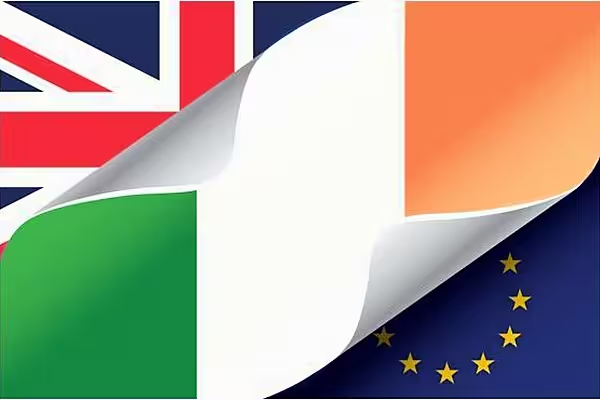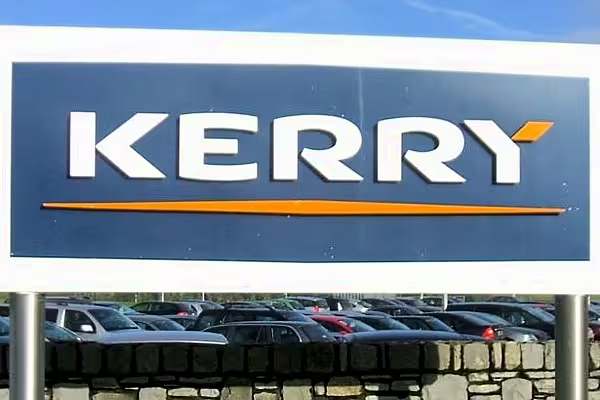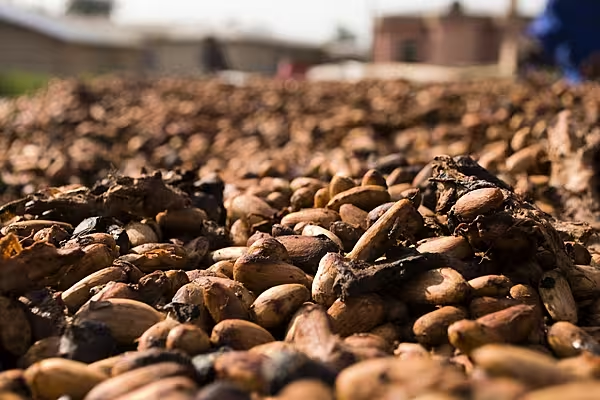More than two months on from the end of the Brexit transition period, some in the retail sector are still facing difficulties as a result of supply disruptions. Simon MacAllister, Brexit lead, EY Ireland, looks at the continuing impact on trade and logistics on both sides of the border.
These difficulties have come as something of a surprise to those who thought “zero tariff, zero quota” meant “no additional costs”.
The various highly publicised incidents involving Percy Pig confectionery, Spanish corn flakes and ham sandwiches can be categorised as either overlooked, wilfully ignored or unintended consequences.
They are all the unavoidable consequences of the UK decisions regarding leaving the Customs Union and Single Market.
On the other hand, it is worth noting that the UK-EU TCA is the only EU trade deal with zero quotas, so that alone remains a significant achievement for both sides.
Who read the 1,246 pages?
One of the problems with the TCA is that it is maddeningly difficult to read, unless you are a customs expert or an international trade lawyer. Even by the standards of some legal agreements, it is impenetrable.
A large portion of the document describes the provisions for each key area, and the remainder of the document then sets out “reservations” which would apply to limit or fully forbid the application of that provision.
So, understanding what is permitted (or not) and under what circumstances (or not) and how it will be administered is a lengthy exercise in cross references, footnotes, links to EU legislation, national legislation and definitions. Fully deciphering the deal’s provisions and applying them to your specific circumstances is definitely a task for specialists.
An area that continues to be poorly understood is the impact on services. While some services provisions had been included, many new barriers had been introduced. Services regulations vary by country and by sector and a detailed analysis is required to understand the changes.
Less business travel than usual is masking some of these changes, which means there is some time available to identify issues before free movement (free from Covid-19) resumes.
Trade And Logistics
Retailers in Ireland were particularly impacted by the lack of preparation on the part of UK suppliers. Many of those issues have subsequently been addressed and the level of stockouts has reduced significantly.
However, disruption was still significant. During the month of January, 4% to 6% of trucks were being refused at UK/EU borders due to incomplete or incorrect paperwork.
That doesn’t sound like many, but with thousands of trucks moving across the English Channel, the issues mount very quickly. It adds costs and time delays for the suppliers and customers affected.
There has been no major congestion at ports which primarily handle accompanied cargo. However, there has been an increase in congestion at ports managing unaccompanied cargo (trailers or boxes).
At least some of this has been due to Covid-driven staff shortages. We have observed clients requiring an average of an extra day to effect shipments from Northern Ireland to Great Britain and 1.5 days from Great Britain to the EU.
These delays have had knock-on impacts. DHL suspended exports from the UK that would require sanitary and phytosanitary (SPS) checks.
For shipments to/from the Republic of Ireland and Northern Ireland, DPD announced that they will not carry any goods that require checks, such as products of plant or animal origin, chemicals or pharmaceuticals.
Many EU-based hauliers have reduced or stopped their UK service due to delays on truck movements and increased costs. This has been further complicated by Covid-19 restrictions. Shipping costs remained high and didn’t follow the normal seasonal reduction. And these increased costs ultimately get passed along the supply chain.
In February, the UK Road Haulage Association published a letter to Micheal Gove outlining problems with customs intermediary shortages, vet shortages and reductions in loads to the EU of up to 68%.
They requested compensation and improved government guidance. Author Edwin Hayward compiled a list of 265 companies from around the world who stopped shipping to the UK, giving a flavour of the impact it is having on trade. Some of those will ultimately resume, others will not.
This has also occurred in the other direction, with retailers such as John Lewis and Fortnum & Mason suspending deliveries from Great Britain to Northern Ireland and the EU.
Customs agents required by many to manage UK imports and exports have been in short supply, as those agents are jointly and severally liable for customs duties and are more and more unwilling to continue to increase their exposure.
The Impact On Ireland
Back home in Ireland, the historic reliance of many retailers on UK distribution hubs has resulted in some quite severe and unforeseen disruptions. These have been caused by the treatment of goods which go from the EU to the UK and back to the EU (in this case, Ireland).
These goods are liable to customs if no significant processing is undertaken in the UK, which is the case for most goods being warehoused or simply repacked. Returned Goods Relief is available to reclaim tariffs, but it carries a higher administrative burden than most companies have been willing to undertake.
However, there was evidence of rapid adjustment to the new environment.
There was continued growth in the level of Ireland to France RoRo routes, with new or expanded services from Dublin, Rosslare and Cork with CLdN, DFDS, Stena, Irish Ferries and Brittany Ferries.
Additional LoLo capacity has also been added through Samskip, Eucon and Containerships.
Comments from hauliers and ferry companies suggest that volumes have declined significantly on the Irish Sea routes, with Holyhead down by 50% on the same period last year. On the other hand, there were slight increases on routes direct to Belfast.
Another unforeseen Brexit outcome was the announcement by Mastercard of an increase in fees for UK customers buying from EU vendors. A charge of 1.5% of value for online purchases is a significant increase from the current 0.3%.
Debit card payments increased from 0.2% to 1.15%. The benefit goes to UK banks/card issuers, rather than Mastercard. The change is not a consequence or direct result of Brexit, but it has been facilitated by the UK now not being subject to the EU mandated cap on interchange fees. These higher fees are bad news for both UK consumers and EU retailers.
The Impact On Northern Ireland
The ramifications of the unfortunate near triggering by the European Commission of Article 16 of the Northern Ireland Protocol continue to rumble on. Fortunately for all concerned, it appears that Michael Gove and Maroš Šefčovič have succeeded in taking much of the heat out of a rather fraught situation and the focus has now returned to making the Protocol work. However, recent moves by the DUP to challenge the Protocol could complicate this.
While there have been issues with moving goods, it is worth separating out the different trade flows, as each has a different regime. The Republic of Ireland to Northern Ireland trade has flowed without delays or issues. Northern Ireland to Great Britain trade has also moved without issue as there are no checks.
Great Britain to Northern Ireland trade has experienced challenges, including some of the highly publicised issues which have impacted both on retailers and consumers.
Overall, based on our experiences with clients, while there are some exceptions, the majority of goods are now moving without problems in all directions. If firms were not prepared, most have reacted quickly to address the new requirements.
Groupage (the transport of multiple shipments in a single load) had been a particular problem, but an agreement has been put in place to simplify these, by sealing individual pallets. The previous approach resulted in the single trailer seal being broken every time a new pallet was collected, which required the entire load to be recertified.
The level of Trader Support Service support for businesses moving goods between Great Britain and Northern Ireland (and vice versa) or bringing goods into Northern Ireland from outside the UK has been relatively limited, but this is expected to improve as the scheme expands.
Looking Ahead
There will be continued examination of supply chains which are impacted by storage or haulage through the UK.
In addition to actions taken in 2020, we expect to see warehousing development in Ireland in 2021 to remove the UK risk from supply chains. A 650,000 square foot Amazon facility in Baldonnell, west Dublin, was a widely publicised example.
Ongoing logistics issues, separate to Brexit, will continue to cause problems for supply chains. There is a shortage of containers (in the right location) and many container ships are delayed outside Chinese ports. Significant increases in logistics costs from the Far East to Europe have already been observed. Additionally, EU compliant pallets are likely to be in short supply in the UK in the coming months.
In the longer term, it is reasonable to assume that the UK might move to a different basis for the relationship, as the structural impacts of the current arrangement become clear. Irish retailers need to keep a close watch on developments in this area to ensure they are ready to take advantage of any changes as they arise.
Our suggested action plan for businesses to manage the unfolding situation is:
- Maintain a Brexit response team
- Communicate with your priority suppliers l Familiarise yourself with new IT systems and their requirements
- Closely monitor the impact on your cost base l Be alert for opportunities that might emerge as suppliers stop servicing the Irish market
- Collate a list of regulatory requirements, including labelling, markings and registrations, for goods sourced from the UK
© 2021 Checkout – your source for the latest Irish retail news. Article by Simon MacAllister. Click sign up to subscribe to Checkout.









